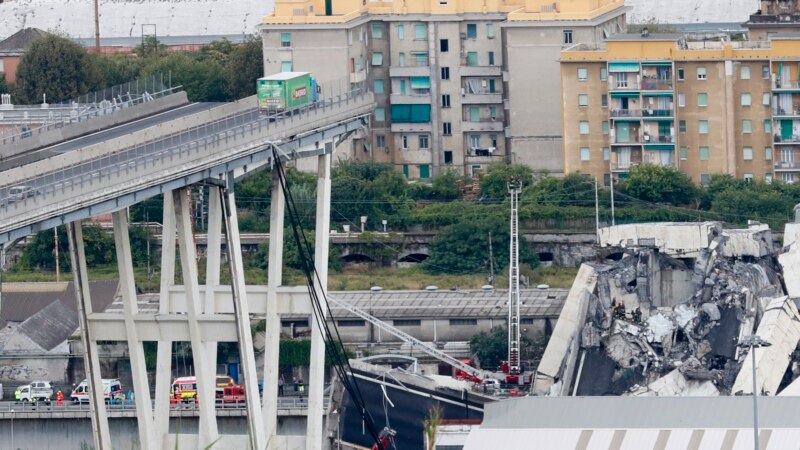A trial opened Thursday in the 2018 collapse of a bridge in Genoa, Italy, with 59 individuals charged in the deaths of 43 people.
The Morandi Bridge was crowded with travelers during the height of Italy’s summer holiday season when it collapsed during a rainstorm on August 14, 2018, sending cars plunging 45 meters (148 feet) into a dry riverbed below.
Those on trial include employees of Autostrade per l’Italia, which operated the bridge, and its maintenance unit SPEA, as well as past and present Ministry of Infrastructure and Transport managers and civil servants.
Autostrade and SPEA have reached a $33 million settlement in the case and will not be testifying.
The defendants face numerous charges, including manslaughter and making false statements. All have denied the charges and dispute the findings of an expert report on the collapse.
Among the defendants is former Atlantia CEO Giovanni Castellucci, who is charged with endangering the safety of citizens on the roads and failure to take preemptive precautions to prevent disasters, Reuters reported. If convicted, he faces a maximum sentence of 15 years in prison. At the time of the collapse, Autostrade was part of the Atlantia group.
Built in the late 1960s, the bridge became structurally unsound, the report said, and required expensive maintenance. Prosecutors contend the defendants knew the bridge was unstable and that it collapsed because employees cut back on maintenance to save money.
The next hearing in the case is scheduled for September 12, with the trial expected to last at least a year because of its complexity.
Family members of the victims say they hope for justice.
“We have many expectations. This process must lead to justice and truth for our families and for Italians,” Egle Possetti, whose sister, brother-in-law, niece and nephew were killed in the collapse, told The Guardian newspaper. “We are convinced that the prosecution case is very strong, and should this lead to a stalemate, even with these strong elements, it means that as a nation we no longer have hope.”

